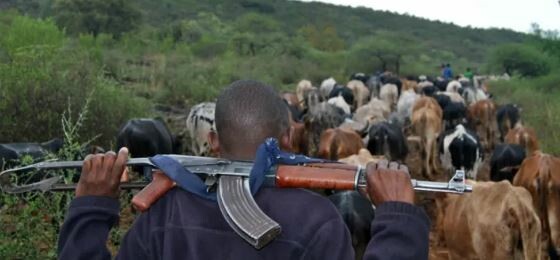At least 379 head of cattle were raided and seven people were killed by unknown assailants in Unity State’s Mayom County over the weekend, the police said.
Speaking to Radio Tamazju on Tuesday, Col. Maluke Geng, the police director in the county, said the incident happened in Kuerchiedieng village, north of Mayom County, on Saturday when a group of armed men attacked Misseriya Arab nomads from Sudan who are grazing their cattle in Mayom County.
“I think the criminals spied and knew that the cattle keepers have been taking their cattle for pasture in Kuerchiedieng Forest. After they knew that only a few men were herding the cattle, they attacked them, killed seven, and took 379 cattle with them,” he said. “We are suspecting that armed youths under the leadership of a spiritual leader called Gai Machiek may have taken part in the raid. We have often advised our youth not to raid cattle from Warrap State or Sudan.”
Col. Geng added: “Those who attacked the Arabs are not armed youth from Mayom County but Gai Machiek’s armed youth because they moved towards Aniet Payam in Twic County, Warrap State, after the raid.”
According to the police chief, it is sad that victims fled conflict in Sudan only to encounter brutal cattle rustling in South Sudan. He stressed that his forces in Norti-Kuur pursued the criminals but returned empty-handed, pointing out that the cattle rustlers could not be found because they used a different route.
“Unity State Governor Dr. Joseph Monytuil met with the leaders of the Messeriya and assured them of their safety in the area,” Geng stated. “The governor ordered that some forces stay with them in Kuerchiedieng because the area has good pastures for cattle because it is not like other areas submerged by flood waters.”
He said it was the first time the Messeriya had been attacked since they settled in the area.




